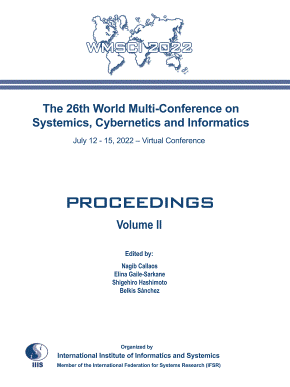2022 Summer Conferences Proceedings

|
The Impact of the Implementation of an Integrated Management System on the Operation of a Company: A Case of a Food Production Company
Elina Mažeika, Arta Pīlēna-Dālberga
Proceedings of the 26th World Multi-Conference on Systemics, Cybernetics and Informatics: WMSCI 2022, Vol. II, pp. 104-109 (2022); https://doi.org/10.54808/WMSCI2022.02.104
|
The 26th World Multi-Conference on Systemics, Cybernetics and Informatics: WMSCI 2022
Virtual Conference July 12 - 15, 2022 Proceedings of WMSCI 2022 ISSN: 2771-0947 (Print) ISBN (Volume II): 978-1-950492-65-7 (Print) |
|
Abstract
The need for efficient, sustainable, and flexible systems in organizations for a variety of products and services is growing rapidly. Companies that regularly face overlapping requirements or areas of operation need to consider the integration of different operations, processes and systems into a single framework. For this purpose, companies may need to evaluate the potential benefits of implementing an integrated management system. In the food industry, significant emphasis is put on the control of nonconformities as the safety of the company's products for the end consumer is in question. Companies develop control processes within integrated management systems to prevent nonconforming products from reaching end-users.
The aim of this paper is to analyze the impacts of implementing an integrated system in a company. Research methods such as literature review method and qualitative content analysis, as well as logical analysis are applied. Based on both the theoretical research and a case study of a food production company the authors identify the main aspects of operation impacted by the implementation of an integrated management system in a company and determine the effects of implementation of an integrated system focusing on the improvement of control of nonconformities in a food production company. |
||




